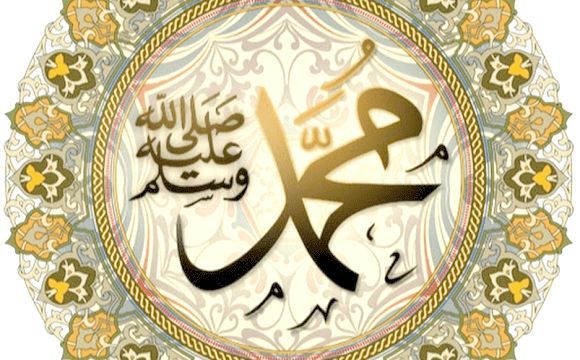By: Khursheed Alam Dawood Qasmi*
Our beloved Prophet Muhammad (Peace and blessings of Allah be upon him!) was sent as a mercy for all the worlds. Each and every one benefited from his favours and blessings. The people are indebted to so many favours done to them by the Prophet (SAWS). Allah’s all creations: humans, jinns, animals, plants etc. were blessed with his favours and mercy. Allah the Almighty says: “And We have not sent you but as mercy for all the worlds.” The Prophet (Peace and blessings of Allah be upon him!) is the greatest benefactor and well-wisher of this Ummah. He (Peace and blessings of Allah be upon him!) has innumerable favors on the Ummah. There are several rights of Prophet Muhammad (Peace and blessings of Allah be upon him!) over this Ummah. It is the right of the Prophet (Peace and blessings of Allah be upon him!) that the people should believe in his prophet-hood and messenger-hood. They should obey his instruction. They should follow his Sunnah. They should abide by his command and order. They should love him more than anyone. They should respect and honour him. One of the rights of the Prophet (Peace and blessings of Allah be upon him!) is that the Ummah send Salaah and Salaam upon him abundantly. The word: “Salaah” is an Arabic word. It has several meanings. Here it is used to convey the sense of Mercy (Rahmah), prayer (Dua) and praise (Madh and Thana). When “Durood” is used in a technical meaning, at that time, “It is a prayer and a greeting that is sent upon the Prophet Muhammad Mustafa (Peace and blessings of Allah be upon him!)”.
Command of Salaah in the Glorious Qura’an:
Allah the Almighty has commanded to send Salaah upon the Prophet (Peace and blessings of Allah be upon him!) in Surah Al-Ahzab of the Glorious Qur’an. This verse clearly shows that Allah the Almighty Himself and His angels send Salaah (Durood) and Salaam (salutation) to His beloved Prophet. After that, Allah, the Exalted, has ordered all the believers to send Salaah upon the Prophet (Peace and blessings of Allah be upon him!). It should be clear that attributing Salaah to Allah the Almighty means showering and sending of mercy on the Prophet (Peace and blessings of Allah be upon him!). When Salaah is attributed to the angels, at that time, it means their prayer for the Prophet. When Salaah is on behalf of the common believers, at that time, it means the combination of Duaa (Prayer) and Thana (praise). The verse wherein Allah has commanded us to send Salaah is this one: “Surely, Allah and His angels send blessings to the Prophet. O you who believe, do pray Allah to bless him, and send your Salam (prayer for his being in peace) to him in abundance”. (Surah Ahzaab: 56)
Mufti Muhammad Shafi (1897-1976) Rahimahullah writes under the commentary of the above verse: “The real purpose of the verse was to obligate Muslims to send Salah (Durood) and Salam upon the Holy Prophet (SAWS). But the command was given in a manner that, first of all, Allah Ta’ala pointed out that He Himself and His angels perform the act of Salaah for the Holy Prophet (SAWS). After that, common Muslims were ordered to follow suit. By doing so, it is indicated that the station of the Holy Prophet (SAWS) is so high that the act asked to be done by common Muslims in his respect is something already done by Allah Ta’ala Himself as well as angels with Him. Now then, common believers who are indebted to so many favours done to them by as their noble Prophet should certainly give high priority to making this act their essential concern. Then there is yet another good outcome of this modality of expression. It proves the great merit accredited to Muslims who send Salah and Salam as Allah Ta’ala makes them share in doing what Allah Ta’ala Himself does and so do His angels.” (Ma’ariful Qura’an: 7/228)
Most Virtuous Durood Sharif:
Durood Sharif is found in different words and forms in the books. In this regard, we have to keep in mind that every Durood in which the words of Salaah and Salaam are found, will fulfill the requirement and obligation of sending the Durood and Salaam upon the Prophet (Peace and blessings of Allah be upon him!) and the sender will be rewarded for it. Durood-e-Ibrahimi (Salaah wherein Ibrahim (AS) has been mentioned) contains the best words compared to other Salaahs. The Prophet (SAWS) chose Durood-e-Ibrahimi for prayers. It is the most virtuous and the best Durood.
“…. many different forms of Salah (Durood), have been authentically reported from the Holy Prophet himself. The requirement of sending Salah and Salam can be fulfilled by every such sentence that has the words of Salah and Salam in it. Then, it is also not necessary that those words should have been reported exactly as said by the Holy Prophet (SAWS). In fact, the obligation may be discharged and the reward of sending Salah may be achieved by any style of address that conveys the words of Salah and Salam. But, it is obvious that the exact words reported from the Holy Prophet are certainly much more blessed and are the cause of bringing many more rewards. It was for this very reason that the noble Sahabah had asked the Holy Prophet (SAWS) himself to determine the words of Salah.” (Ma’ariful Qura’an: 7/230)
It is narrated by Ahdur Rahman bin Abi Laila that Ka’b bin ‘Ujra met me and said: “Shall I give you a present? Once the Prophet (SAWS) came to us and we said, ‘O Allah’s Messenger (SAWS)! We know how to greet you; but how to send Salah (Durud) upon you (let us know)? He (SAWS) said: Say: Allahumma Salli Alaa Muhammadin, Wa Alaa Aali Muhammadin Kama Sallaita Alaa Aali Ibrahima, Innaka Hameedum Majeed. Allahumma Barik Alaa Muhammadin, Wa Alaa Aali Muhammadin, Kama Bdrakta Alaa Aale Ibrahima, Innaka Hameedum Majeed.’ (Bukhari: 6357)
Virtues of Sending Durood:
A few Hadiths are quoted regarding the virtues of sending Durood here. Various glade tidings and good news have come in different Hadiths for those who send Durood. In the following Hadith, it is stated that whoever sends Durood once, Allah will shower ten blessings upon him. It is narrated from Abdullah bin Amr bin Al-Aas (RA) that he heard the Prophet (SAWS) saying: “When you hear the Mu’adhdhin (calling Adhaan), say what he says, then send Salaah upon me, for whoever sends Salaah upon me once, Allah will send Salaah upon him tenfold. Then ask Allah to grant me Al-Waseelah, for it is a station in Paradise which only one of the slaves of Allah will attain, and I hope that I will be the one. Whoever asks for Al-Waseelah for me, (my) intercession will be permissible for him.” (Sahih Muslim: 384)
The one who sends the most Salaah upon the Prophet (SAWS), he will be closest to him on the Day of Judgment. Abdullah bin Mas’ud (RA) narrated that Allah’s Messenger (SAWS) said: “The person closest to me on the Day of Judgement is the one who sent the most Salaah upon me.” (Sunan Tirmidhi: 484)
Friday is the chief of the remaining six days of a week. Friday is said to be the best day of the week in Islam. In the Hadith, there is an instruction to read Durood upon the Prophet (SAWS) on Friday abundantly. Aws bin Aws (RA) said: The Prophet (SAWS) said: “Friday is of the best of your days, so increase your Salaah upon me on it, for indeed, your Salaah is presented to me.” (Sunan Abu Dawood: 1531)
If a person sends Durood once; so there are four kinds of rewards for him from the Almighty Allah. Allah’s Messenger (SAWS) said: “Whoever from among my Ummah sends Durood upon me once with sincerity from his heart, so Allah sends down ten blessings upon him for it, Allah raises him ten ranks, He writes ten good deeds for him and he forgives his ten (minor) sins”. (Al-Sunan al-Kubra LilNasai: 9809)
Abu Hurairah (RA) narrates that Allah’s Messenger (SAWS) said: “Do not make your houses into graves, and do not make my grave an ‘Eid (a regular place of visitation), and send your Salaah upon me, for your Salaah will reach me wherever you might be.” (Sunan Abu Dawood: 2042)
Wrath upon those not Sending Durood:
According to a Hadith, if the people sit in a gathering and they don’t remember Allah the Almighty and they don’t send Durood upon the beloved Prophet (SAWS), that gathering remains without the mercy of Allah. Such gathering is harmful and it will be source of regret for those who sat there in that gathering. Abu Hurairah (RA) narrates that the Prophet (SAWS) said: “No group gathers in a sitting in which they do not remember Allah, nor send Salaah upon their Prophet (SAWS), except it will be a source of remorse for them. If He wills, He will punish them, and if He wills, He will forgive them.” (Sunan Tirmidhi: 3380)
A person who doesn’t like to spend his money where required, lives very poorly in order to store up wealth, such person is called “a miser or stingy”. In the following Hadith, our beloved Nabi (SAWS) regarded a person as a stingy when he doesn’t send Durood upon him, whereas he is mentioned before him. In brief, it is enough for a person to be miser that the beloved Nabi (SAWS) is mentioned before him and he does not send Durood upon him (SAWS). Ali bin Abi Talib (RA) narrated that the Messenger of Allah (SAWS) said: “The stingy person is the one before whom I am mentioned and he does not send Salaah upon me.” (Sunan Tirmidhi: 3546)
Abu Hurairah (RA) narrated that the Messenger of Allah (SAWS) said: “May the man before whom I am mentioned, and he does not send Salaah upon me, be humiliated. (Sunan Tirmidhi: 3545)
This following Hadith makes it clear that when a person sit for ‘Tashah-hud’ in Salaah, firstly he should express his gratitude to Allah the Almighty and praise Him. Then he should send Salaah upon the Prophet (SAWS). When he has expressed his gratitude and sent Durood, then he should supplicate whatever he wishes. Amr bin Malik Al-Janbi (RA) narrated that he heard Fadalah bin Ubaid saying: “The Prophet (SAWS) heard a man supplicating in his Salaah, but he did not send Salaah upon the Prophet (SAWS) so the Prophet (SAWS) said: ‘This one has rushed.’ Then he called him and said to him, or to someone other than him: ‘When one of you performs Salaah, then let him begin by expressing gratitude to Allah and praising Him. Then, let him send Salaah upon the Prophet (SAWS), then let him supplicate after that, whatever he wishes.” (Sunan Tirmidhi: 3477)
A Few Issues Related to Durood:
It is obligatory upon a Muslim to send Durood upon the beloved Prophet (Peace and blessings of Allah be upon him!) once in his lifetime. If the Prophet (Peace and blessings of Allah be upon him!) is mentioned several times in a gathering; so it is obligatory to recite Durood at least once and it is better and virtuous to send Durood every time. (Raddul Muhtaar: 1/ 516) It is Sunnah Muwakkidah to send Durood in Salaah. If you are writing something and the Holy Prophet (Peace and blessings of Allah be upon him!) is mentioned; so, instead of a short form, one should write “Durood”, in full form like: “Sallallahu Aleihi Wa Sallam“. ●●●●
*Moon Rays Trust School, Zambia, Africa
Email: qasmikhursheed@yahoo.co.in

















